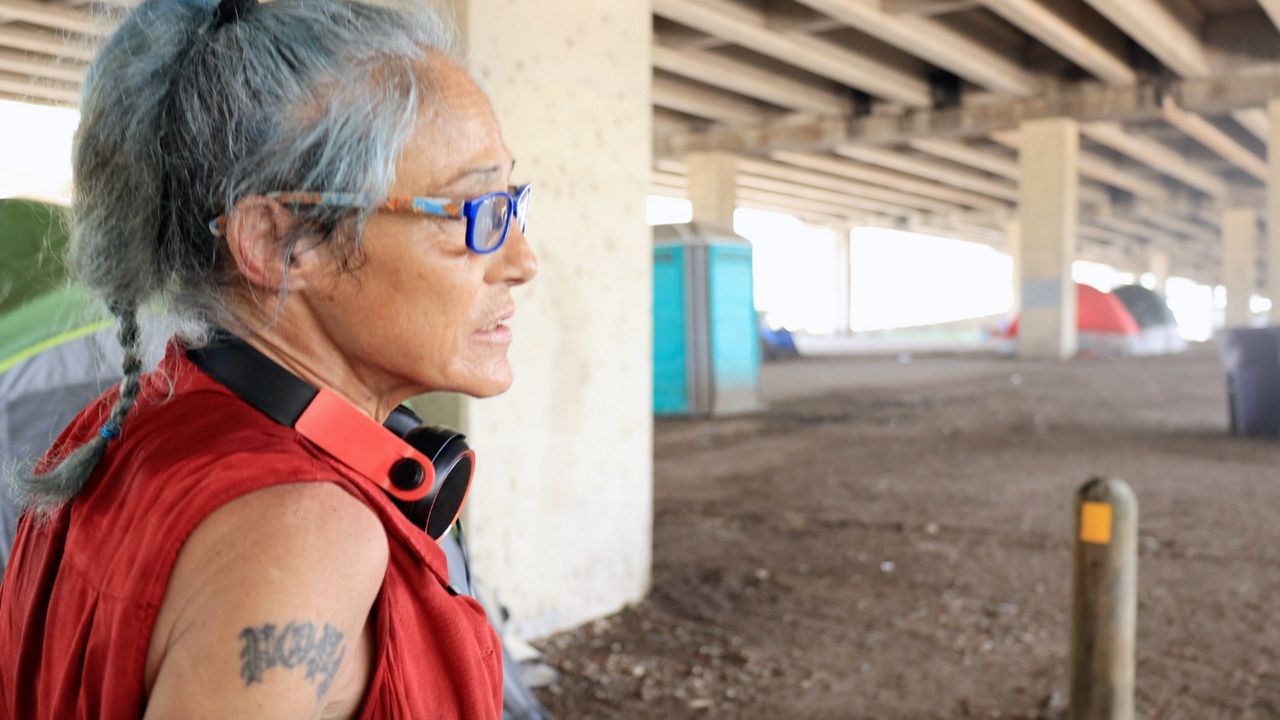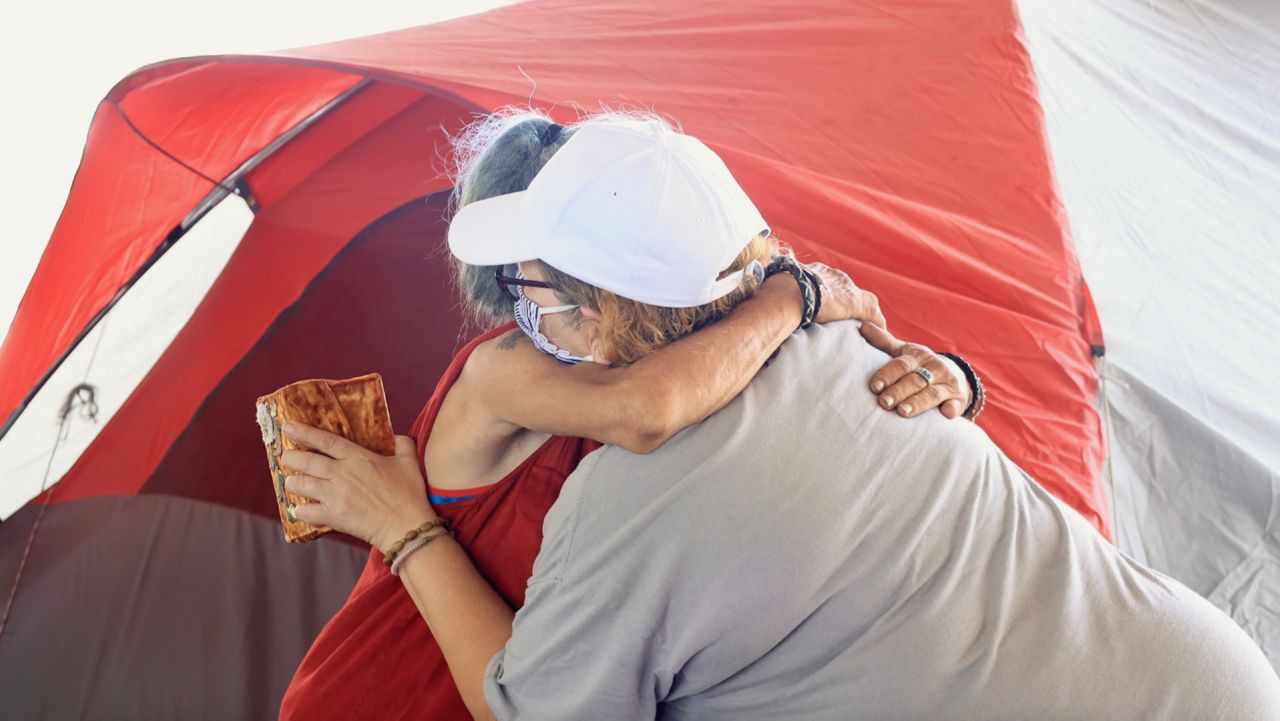AUSTIN, Texas — Many voters in the Capitol City had their voices heard on the heated topic of homelessness in the city.
During May elections, residents voted in favor of Proposition B — 57% to 43% to reinstate a public camping ban that was lifted in July 2019.
The “no sit or lie ordinance” will make it illegal to camp in public spaces and limit panhandling in certain areas. The camping ban is expected to go into effect, on May 11, leaving some unhoused residents confused by the tight deadline.
Fifty-four-year-old Dawn Howell has been experiencing homelessness for over seven years. She lives in a homeless encampment underneath an overpass near Downtown Austin.
“It really sucks because they came out and brought us porta-potties. They set us up and then they’re cutting us off. They're throwing us out after they let us get comfortable here,” says Howell.
She heard the news about Prop B passing early Sunday morning. As the news spread throughout her community, many grew frantic and they're unsure of where they are supposed to go.

“Even people in apartments get 30 days. They giving us 10. We gotta find somewhere to go and pick up all of our stuff in 10 days,” explains Howell. "They made the homeless... homeless. If you think about it, that’s what they did. They made the homeless, homeless."
Howell feels once she leaves the camp she’s called home for so long, case workers and volunteers, who would normally help her with services and resources may not be able to locate her. Howell says she was talking to a case worker about housing support. She fears her chance at a shelter may be shattered if she isn’t able to communicate with them before May 11.

“They know where to find me here. But now I’m not going to be here and I don’t know where I’m going to be from day to day. I don’t know where I’m going to sleep,” says Howell.
The City of Austin recently purchased two hotels that will provide housing for people experiencing homelessness. Earlier this week, City Council also voted to advance a plan to house 3,000 people experiencing homelessness in the next three years.



